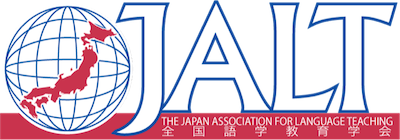Your cart is currently empty!
While we update our website, you can still access the old version at legacy.jalt.org

- This event has passed.
A research summary on emotion regulation followed by a workshop on emotional intelligence
April 22, 2023 @ 6:00 PM
Sam Morris
A research summary on emotion regulation followed by a workshop on emotional intelligence
Presenter: Sam Morris
Abstracts
Presentation: Emotion Regulation by Language Teachers at a Japanese University (40 mins)
In recent years increased attention has been paid to the emotional dimension of language teaching, a consequence, perhaps, of the move towards an emotional turn in applied linguistics (e.g., White 2018). While much is being learnt about the subject-specific emotional demands language teachers face (e.g., Gkonou & Mercer, 2017; King, 2016, Gkonou et al. 2020), it is important to acknowledge that teachers have a great deal of agentive control over the emotions they experience and display in the classroom. The psychological, behavioural, and cognitive steps that individuals employ to manage their emotions are known formally as emotion regulation, and here I present data from a qualitatively driven study that explored the ‘how‘ and ‘why’ of the emotion regulation performed by 15 non-Japanese teachers working at a Japanese university. The data, collected through interviews, classroom observations, and stimulated recall sessions, demonstrates the numerous diverse strategies and motives underlying the participants’ emotion regulation decisions. Such decisions which were themselves driven by subjective interpretations of both internal and external contextual forces, including the teachers’ past experiences, critical classroom incidents, institutional expectations, and the greater sociocultural climate. Implications will be drawn for teachers, managers, and institutions with regards to adaptive emotion regulation that best serves teacher well-being and student learning.
Workshop: Activities for teaching students about emotions (50 minutes)
Notions of emotional intelligence and emotional health are more important than ever given current world events, and since language teachers are increasingly integrating content-based knowledge within their instruction, there are numerous opportunities to broach the science of emotions within the language classroom. In this workshop I share materials and instruction for CLIL-informed, discussion-based activities that teach learners about how their emotions function, and about how they can more ably manage emotional stress in their working lives. Each activity will be presented with attention to the content-based theory underlying the learning, as well as to potential linguistic foci. The activities have been designed and implemented with undergraduate learners, but discussion for adapting to other ages and contexts will also take place.
Format: Online (Zoom)
Attendees: a Zoom link and password will be sent to attendees upon registration.
Registration (required)
Register your attendance at the following link https://jalthokkaido.peatix.com
Admission Fees
JALT Members, JALT Hokkaido Local Members and students – Free admission
Non-JALT members: 500 yen pre-registered (see below)
Non-JALT members: *500 yen
*As an NPO, our members finance the costs to host the quality presenters we bring to Hokkaido. To help us cover our costs, we would like non-JALT attendees to contribute by paying an attendance fee of 500 yen. This will entitle you to ask questions to the presenter during the Q&A session as well as get access to the video.
Presenter Profile
Sam Morris teaches in the Center for Foreign Language Education and Research at Rikkyo University. He is broadly interested in the affective and emotional dimensions of language teaching and learning and studied his PhD at the University of Leicester (UK). His most recent research has explored the emotion regulation decisions that language teachers make and the impact that these have on various facets of classroom practice.
題名:感情知能に関するワークショップと感情制御に関する研究概要
発表者:サム モリス
日時:4月22日(土)午後18:00-19:30
会場:ズーム
開催方法:オンライン
参加費:会員無料、非会員オンライン参加の非会員500円 ※1
講演概要
プレゼン発表:日本の大学での語学教員による感情制御(40分)
近年では、言語指導での感情範囲に高い注目が集まっており、おそらく結果として応用言語学では感情的な方向転換への動きがある(e.g., White 2018)。教員が直面する教科に特定した感情的要求については多くが明らかになった(e.g., Gknonou & Mercer, 2017; King, 2016, Gkonou et al. 2020) 一方、教員は経験した感情を教室で見せることよりもエージェント制御の方が多いことを認識することが大切である。個人が感情を管理するために心理学的、行動的、認知的ステップを用いることは、感情制御として知らており、ここでは、日本の大学で教鞭をとられている15人の外国人教員による感情制御の「どのように」と「なぜ」についての質的研究データを発表する。データは、インタビュー、授業観察、刺激された想起の時間を通して集められた。これらは、参加者の感情制御や決定に基づいた様々なストラテジーと動機を提示する。このような決定は、教員の過去の経験、教室での決定的な出来事、機関での期待、広くて社会文化的な風潮を含めた内部と外部の文脈的な力によるものである。これらの意味は、健康的な教員と学生の学習に最も使われる適応感情制御に関するものであり、教員、管理者、機関にとって重要である。
ワークショップ:学生に対する感情指導の活動について(50分)
感情知能と情緒的健康の概念は現在の世界の出来事よりも重要である。語学教員は内容ベースの知識を指導と統合することが増えており、また、語学教室内での感情の科学を持ちだす機会がとても多くあるためである。今回のワークショップでは、資料とCLILに基づいた指導やディスカッションベースの活動を共有する。これらは、学習者に感情の機能や日常生活における感情ストレスをさらに上手にコントロールする方法を指導する。それぞれの活動は、学習と言語学に基づいたコンテンツベースの理論と一緒に発表される。これらの活動は、学部生と一緒にデザインならびに実践されたが、ディスカッションは他の年齢や文脈に対応して行われる予定である。
開催方法:オンラインzoomリンク等は事前参加申込後にて通知
オンラインでの参加者数は無制限です。 感染状況の悪化により、オンラインのみの開催になる可能性があります。 その際はご連絡致します。
参加申込(必須)
こちらのリンクより事前参加申込が必要 https://jalthokkaido.peatix.com
発表者略歴
サム モリス氏はCenter for Foreign Language Educationでの指導、ならびに立教大学で研究をされています。また、言語指導や言語学習における感情の範囲について幅広く興味を持たれており、イギリスのレスター大学では博士課程を修了されました。最も最近の研究では、言語教員が作る感情制御の範囲とクラスルームでの実践における様々な様相に対するインパクトについて調査されたことがあります。
※1 オンライン参加費(非会員500円)について
NPO法人として、質の高い発表者を北海道に招聘するための費用は会員が負担しています。 そのため、オンライン参加者の方にも、参加費として500円をご負担いただきたいと考えています。参加費500円の支払いにより質疑応答時の発表者への質問や、講演ビデオへのアクセスが可能になります。
